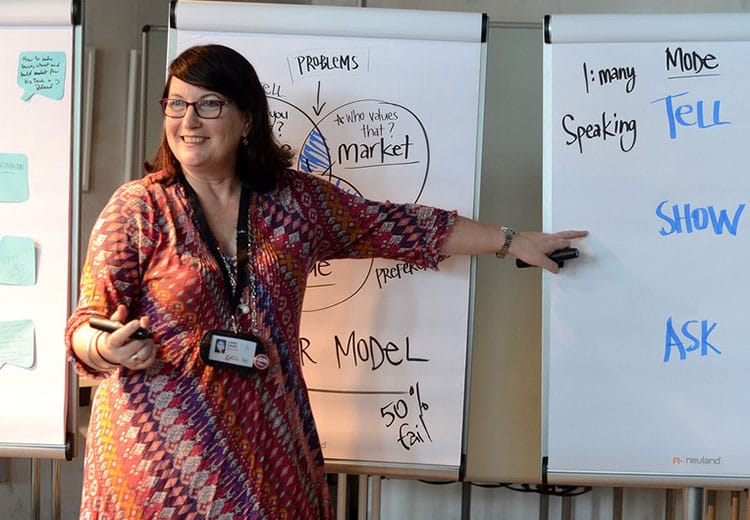Don’t Play The Busy-ness Game. Here’s Why More Effort Doesn’t Equal Better Results.

With to-do apps, email management techniques and productivity hacks the order of the day in our always-on world, it seems the more solutions we discover to help us be more productive, the busier it allows us to become!
But it’s time for a reality check based on some recent research about work and effort.
Confident in quality – only
Wilson and Plummer in a Harvard Business Review article reported on the belief that people equate time spent on a task with the quality of the work. We often think spending another 30 minutes – or three days – on something will make a difference. It usually doesn’t. It only makes us feel more confident in the quality, it doesn’t really affect the quality.
They suggest spending more time hurts our performance and reduces the quality. Our thinking, emotional intelligence and problem-solving skills diminish the longer we spend working on the finer details, especially if lack of breaks or sleep is involved.
Long days and all-nighters
Many people recall a time they’ve worked back late, pulled an all-nighter or put in excess time on something like a report or presentation only to end up making mistakes. Errors like working on the wrong version of the document, losing changes or struggling to get your head around all of that information are common signs that the busy-ness epidemic could have hit you.
Our engagement levels, decision-making skills and attention to detail decline when we push on working longer and harder… and then the quality of the work ends up suffering, requiring costly reworks.
We also know that putting additional effort in, due to principles like The Law of Diminishing Returns and the Pareto Principle (the 80/20 rule), means extra efforts don’t return the results we hope for.
Effort does not equal reward
Researchers Avgoustaki and Frankort agree. They collected data from 50,000 people from 36 countries between 2010 and 2015 for research into the effect of ‘work effort’. They found the harder people worked, the more likely they reported stress, lower satisfaction and inferior outcomes.
There’s also the incredible missed-opportunity cost. What’s the cost of spending all this time on something like a report or a presentation? What are we missing out on elsewhere in other dimensions of our life?
Burnout. It’s a thing
Working longer hours or pushing for higher standards are activities that are neither sustainable nor smart. The recent re-classification of burnout as an actual work-related or ‘occupational phenomenon’ by the World Health Organization – rather than a problem connected to life management – shows the push to do more can result in damaging and dangerous outcomes for leaders, their teams … and then in their family life.
What to do?
- Be on the lookout. If you find yourself working extra hours tinkering and fiddling with a presentation or staying back late to make something ‘better’ because it’s ‘not good enough yet’, stop and think because this could be classic busy-ness behaviour.
- Get clear on the standard. Before you push on towards imaginary perfection or drop yourself into a hard-work frenzy, get clear about the standard required or the expectations you’re going for.
- They’re always watching. Remember you’re leading a team or organisation that will model your behaviour and emulate this as a culture. An organisation full of burnt out people isn’t going to be a career highpoint.
- Good enough is smart enough. Going for a good enough quality will help keep projects and initiatives moving and give people an opportunity to test out their thinking and ideas. It’s the smart way that start-ups and tech teams work, putting early versions of their ideas out there and then improving on them over time.
Beware the curse of busy work. With burnout a real danger amid the drive for more or better, it’s on the leaders of organisations to set the tone, model the behaviour and show how smarter working means stopping, taking a break and getting a decent night’s sleep.
Otherwise you’ll be leading an organisation of people who see you as the role model and they’ll begin replicating burnout behaviours that will have dire consequences for themselves, the business, your customers, products and services.
For many this is a new way of working but it could be the best answer to busy work – especially for colleagues, friends and family who’d miss you if you were gone prematurely.
Written by Lynne Cazaly.
Have you read?
# Is True Employee Engagement the New Leadership Mindset by Vicki Brackett.
# Why appealing to employee motivations builds an empowered workforce by Tony Holmwood.
# The 30 Most Religious Places in the World, 2019.
# Most Family-Friendly Countries In Europe, 2019.
# Ranked: Least Peaceful Countries In The World, 2019.
Bring the best of the CEOWORLD magazine's global journalism to audiences in the United States and around the world. - Add CEOWORLD magazine to your Google News feed.
Follow CEOWORLD magazine headlines on: Google News, LinkedIn, Twitter, and Facebook.
Copyright 2025 The CEOWORLD magazine. All rights reserved. This material (and any extract from it) must not be copied, redistributed or placed on any website, without CEOWORLD magazine' prior written consent. For media queries, please contact: info@ceoworld.biz








